"The Constitution is the guide which I never will abandon"
-George Washington
"Don't interfere with anything in the Constitution. That must be maintained, for it is the only safeguard of our liberties"
-Abraham Lincoln

The Constitution of the United States is one of the most remarkable documents in history. Written over 200 years ago in 1787, it established the frame of government for the United States of America. It was written by a group of delegates at the Constitutional Convention in Philadelphia, Pennsylvania. Their goal was to create a stronger federal government than the Articles of Confederation had provided. The American states after gaining their independence from England; started operating under an agreement called the Articles of Confederation. They met to alter the Articles, but decided to start all over and make a Federal (United) government.
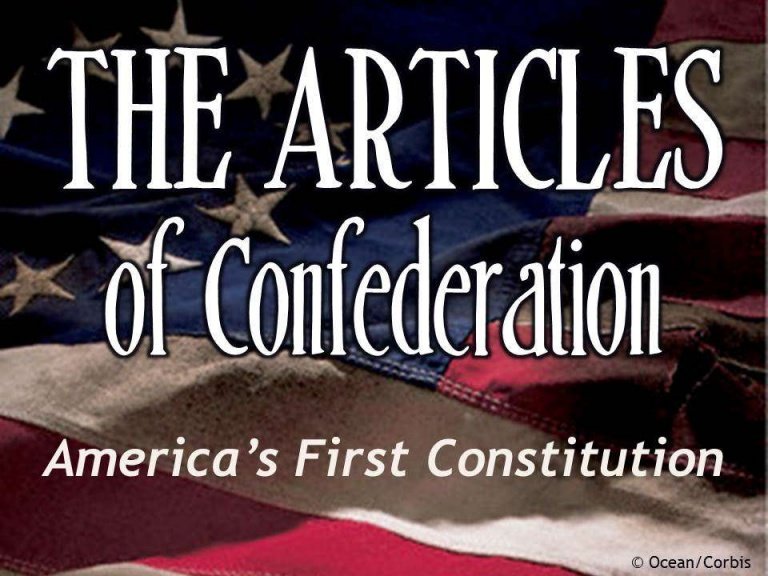
Articles of Confederation is also referred to as America's 1st Constitution
- INSPIRATION FROM COMMERCIAL CONVENTIONS
The call for a Constitutional Convention grew out of the two meetings, the Alexandria and Annapolis inventions. In November 1785, delegates from Virginia and Maryland met in Alexandria, Virginia to reconcile some boundary and commercial disputes along the Potomac River. The success of their meeting motivated Virginia to call for another meeting in Annapolis, Maryland, the following year. Nine states were invited to discuss additional common problems but only five sent delegates. The delegates in Annapolis made plans for another convention to assemble in Philadelphia in May 1787. All states were requested to send delegates so that problems with the government under the articles could be addressed.
- PLANS FOR GOVERNMENTS
Following were the two plans for governmental affairs of the United States:
- Virginia Plan (proposed by Edmund Rudolph)
- New Jersey Plan (proposed by William Paterson)
These two plans had opposite views regarding the powers and functions of Central government and State governments. These opposing forces were followed by Connecticut Compromise which is also called The Great Compromise)

Picture showing Virginia Plan, New Jersey Plan & The Great Compromise features
- FINAL DRAFT OF THE CONSTITUTION

- THREE-FIFTHS COMPROMISE

The Three-Fifths Compromise was reached between Southern States (Slave States) and the Northern States (Free States) who had completely abolished Slavery from their part.
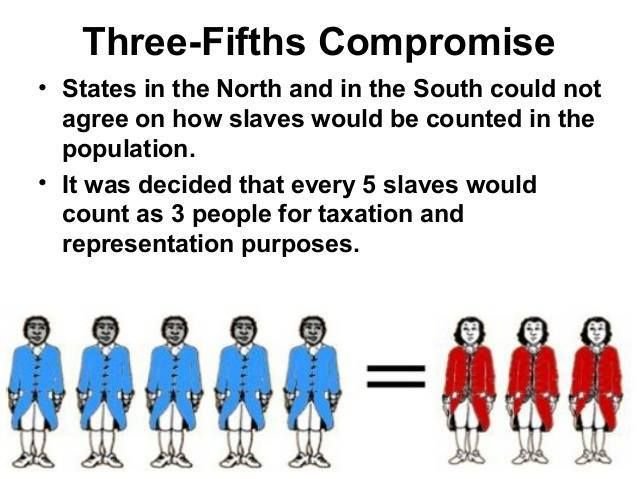
- RATIFICATION
In mid September 1787, the convention put its various decisions into a finished draft and submitted the Constitution to the States for approval. In a bold change, the provision for ratification was altered from the unanimous vote demanded by the Articles of Confederation. Instead a majority of nine states was needed for approval. State conventions were held, and over the next ten months, all but two states, Rhode Island and North Carolina, ratified the Constitution. The new government as defined by the Constitution of the United States convened for the first time in April 1789, The last two of the original thirteen states ratified the Constitution after the new government had begun; North Carolina in November 1789 and Rhode Island in May 1790.
- SALIENT FEATURES OF US CONSTITUTION
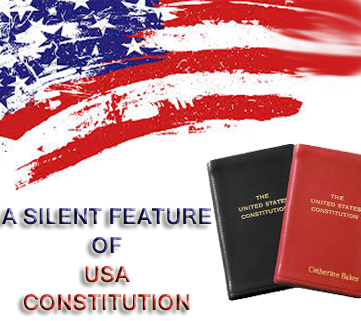
- It is written and brief
- Rigid Constitution
- Federal by Nature
- Separation of Powers
- System of Checks and Balance
- Judicial Review
- Independent Powerful Judiciary
- Sovereignty of the People
- Supremacy of the Constitution
- Republicanism
- Presidential System
- Bill of Rights
- Dual Citizenship
- Spoils System
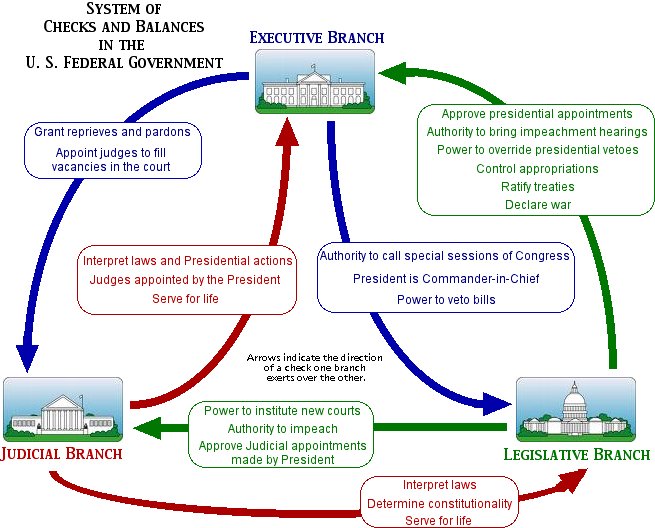
The System of Checks and Balance is the beauty of US Federal System of Government

Spoils System is another strange and important aspect of the US Constitution
- AMENDMENTS IN THE US CONSTITUTION
The US Constitution has been amended twenty seven times since its inception.

First Ten Amendments in the US Constitution
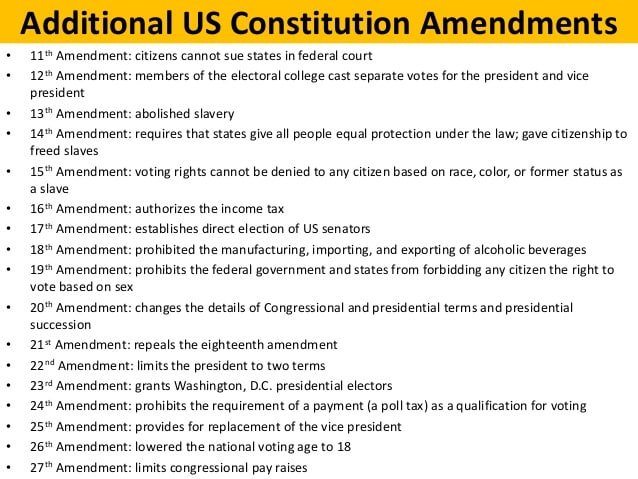
Amendments 11th to 27th in the US Constitution
Thank You for taking time to read this article. In the next article of this series, I shall discuss the War of 1812 and its aftermaths!
Do UP VOTE this post and FOLLOW me @hmjunaid for more interesting stuff!
Congratulations! This post has been upvoted from the communal account, @minnowsupport, by fatimaa from the Minnow Support Project. It's a witness project run by aggroed, ausbitbank, teamsteem, theprophet0, and someguy123. The goal is to help Steemit grow by supporting Minnows and creating a social network. Please find us in the Peace, Abundance, and Liberty Network (PALnet) Discord Channel. It's a completely public and open space to all members of the Steemit community who voluntarily choose to be there.
If you like what we're doing please upvote this comment so we can continue to build the community account that's supporting all members.
Awesome educational post, I loved every sentence. Thank you so much for it, please if you can, at the end site your sources of images and text so that way I can look into them or others can. :) I will definitely follow you as history is one of my favorite topics!
One of the most misunderstood aspects of the Constitution, the 3/5ths compromise was an essential feature in condemning the Peculiar Institution of Slavery to an ultimate death in America.
Today readers of the Constitution wonder precisely which kind of evil racist bastards the founders were. They do so because they perceive the 3/5ths counting of slaves as a legal conclusion that slaves, more particularly African slaves, were the equivalent of 3/5ths of a white person.
That makes for shocking headlines and dastardly allegations, but it misses that the 3/5ths compromise insured that the Southern States, where slavery ultimately confined itself, did not have an over-representation in the United States House of Representatives. We have to understand that, had the Constitution accounted for slaves as whole countable persons, then the census population of those States would have been greater. Compounding that problem, while the Southern States would be, on such an approach, entitled to more representatives than if slaves were not counted, the effect of counting slaves at all would have concentrated that oversized representative power in the hands of politicians selected by only the slave-owning and slave-tolerating portion of the State ... slaves could not vote.